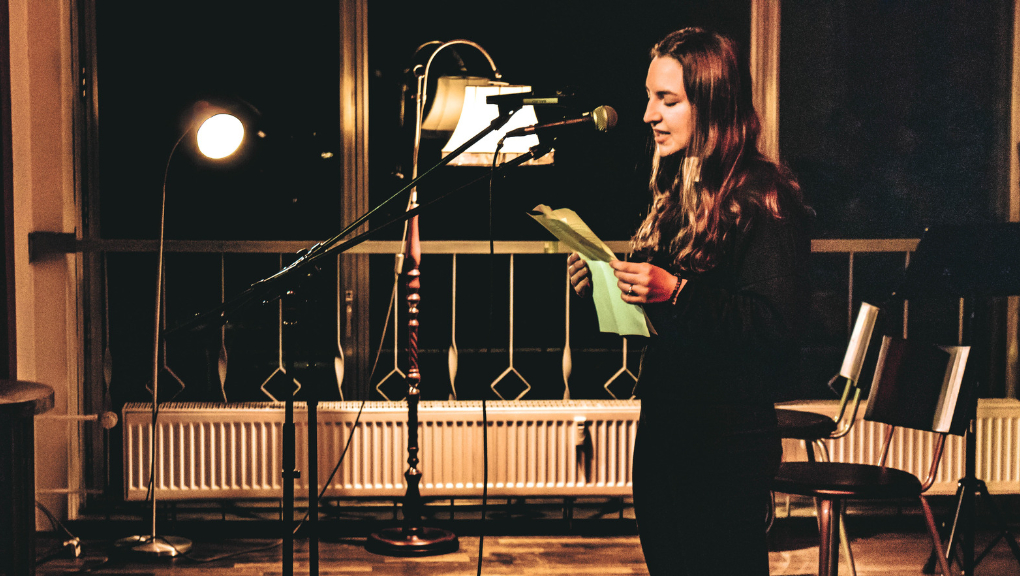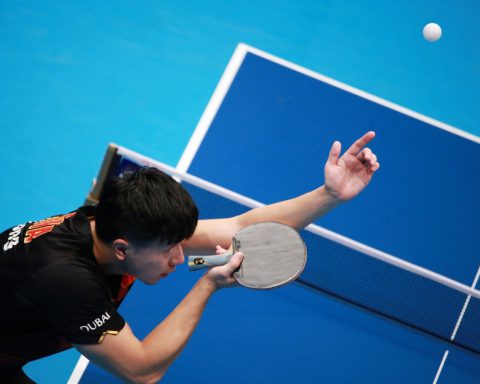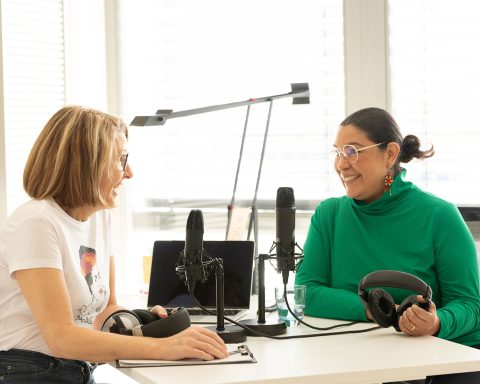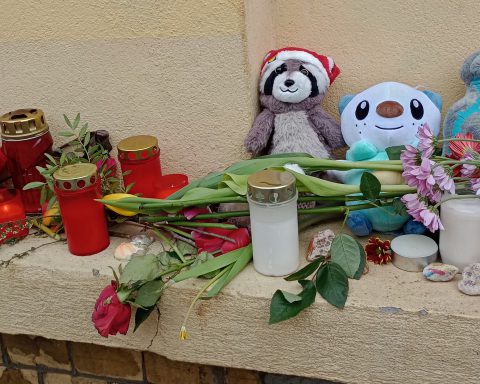“Very authentic.”
These words still ring in my ears, as feedback after my first speech at Leipzig Toastmasters. The topic of this ice-breaker talk dealt with the emotions I experienced, at a very young age, when giving my first speech in a foreign language.
Admittedly, those feelings were not so heroic – and thus not easy to talk about or reveal in front of an audience. Nonetheless, the welcoming atmosphere and positive feedback encouraged and inspired me to continue practicing rhetoric skills at the then-newly founded Toastmasters Club in Leipzig.
Although I had not even been aware of Toastmasters’ role as a worldwide organization for communication and leadership skills, I was immediately impressed with its approach.
A well-thought out agenda guides you through an evening filled with prepared and spontaneous speeches. The latter are held in response to topics and questions posed by a moderator. Immediate feedback, given by experienced members, provides for a valuable learning experience.
Participants also have the chance to work on their leadership skills by functioning as moderators at events, or by taking on mentoring roles to assist novice speakers with their first projects. Giving applause after each speech is very much part of the club’s culture, and contributes to a relaxed atmosphere.
Taking these positive vibes home with me after attending my first Toastmasters evenings, I decided to join in 2007 – first the English-speaking club, and a little later its German counterpart Redefreiheit.
When first practicing rhetorical skills at these clubs, I found the Toastmaster path of completing 10 prepared speeches in order to acquire “Competent Communicator” status quite helpful and educational.
As a novice speaker, the feedback and new insights I received from Toastmaster colleagues proved instrumental for improving my skills. For instance, vocal variety, gestures and visuals are often no less important for a speech’s success than the words behind its message.
A similar effect can be attributed to the short spontaneous speeches practiced at the two clubs. They really help you overcome your inhibitions speaking in front of audiences.
Rhetoric-related skills gained at Toastmasters are also quite applicable to the world outside.
Spontaneous or impromptu speaking skills have helped me to deal more calmly with unexpected, pop-up questions in daily life. The same can be said for making use of vocal variety or gestures when giving presentations in a professional setting.
To maintain these positive effects, the clubs’ speech- and leadership-making programs are always being updated to meet their members’ specific needs. Joschka Birkigt, Leipzig Redefreiheit’s VP of Education, informed me about a very new program: “Pathways.” It has been introduced at Toastmasters to gradually replace the older ones:
“The Pathways program provides distinct educational paths (e.g. motivational speeches, serious presentations, humorous speeches) for members to pursue their specific goals as speakers and leaders. It creates a faster and better success rate and more motivation to stick with projects.”
Competition is also the name of the game at some Toastmaster evenings, where the best speaker is selected by the audience and experienced judges afterwards. Although I had primarily joined Toastmasters for learning rather than competitive purposes, I was curious about the contests the organization offers.
So I approached Dirk Brueckner, an experienced leader at Toastmasters (up to European levels). He informed me that it hosts many competitive events, indeed:
“Every year we conduct the world championship of public speaking, to find the best speaker [across all Toastmasters]. It starts at the club level and continues to the world championship, with various semi-finals. Regular club members compete and proceed from Club to Area, Area to Division, Division to District, and then to the semi-finals. [This leads up to the final contest, where] the best speakers are on stage… in front of around 2,000 to 3,000 people.”
The path thus seems demanding, but definitely has its rewards.
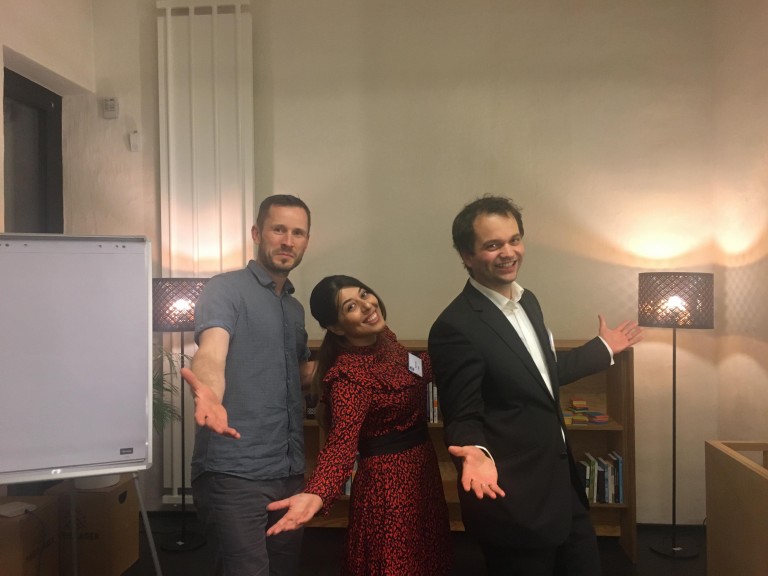
“There are also contests held on a smaller scale, such as ones for humorous speeches or impromptu speeches. Even [a contest] for evaluating target speeches is included,” Brueckner added.
Communicating effectively undoubtedly remains a pervasive challenge, especially for non-native speakers who are suddenly faced with delivering speeches or exercising managerial tasks in a foreign language. Through my affiliation with both the English- and German-speaking clubs, I learnt that their educational programs – which cover all aspects of making speeches – are definitely helpful in meeting that rhetoric challenge.
Especially skills needed for gesturing, vocal variety or using visuals are transferable to any linguistic environment, even if it involves a foreign language.
Membership statistics support the claim that non-native speakers can also benefit from a Toastmasters experience. Ronny Multrus, Membership VP at the English-speaking Leipzig Toastmasters, revealed that almost 90 percent of its members are non-native speakers. Although these numbers are not as high at the Leipziger Redefreiheit, non-native speakers also profit from its programs building up speaking and leadership skills in German.
“Through its prepared or spontaneous speeches, evaluations or speech contests, Toastmasters offers [one] very good opportunities to apply and improve one’s abilities to speak or lead, regardless of whether you are a native speaker or not,” Frenchman Julien Renard pointed out to me, having joined the Leipziger Redefreiheit two years ago.
As someone who clearly benefited from both clubs myself, I can only appeal to non-native speakers or expatriates to give it a try by dropping by at the local Toastmasters.
Also, active social mingling among members at a nearby restaurant / bar after a club evening really helps to break the ice for new members and expats. In sum, Toastmasters, as a global organization, offers local benefits at little cost, which would not be available when signing up for a rhetoric or leadership course elsewhere.
Cover shot: Meimanat Fathi, president of the English-speaking Toastmasters Club in Leipzig. They meet every second and fourth Tuesday of the month at Basislager Coworking. (Photo © Meimanat Fathi / Toastmasters)

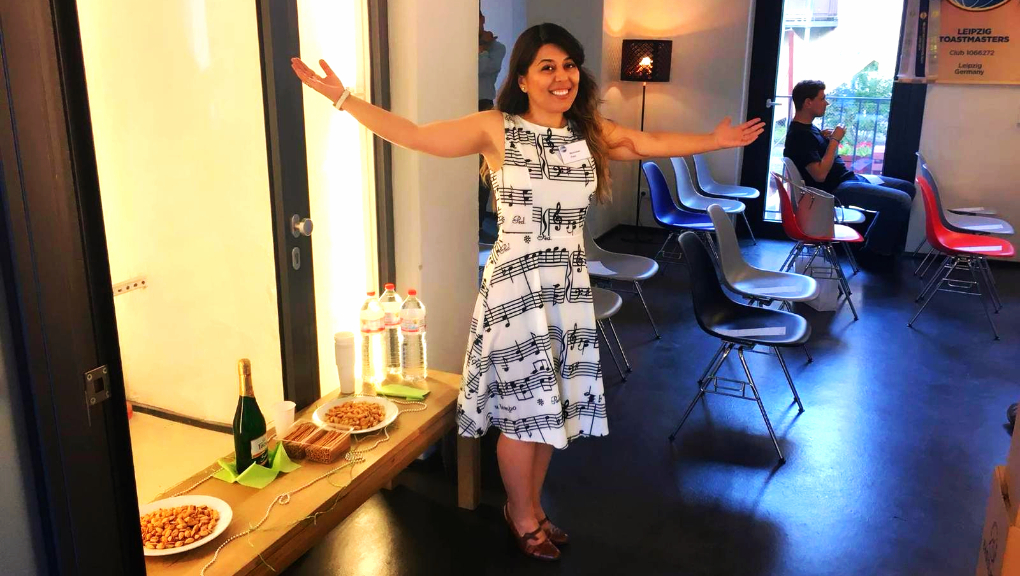
![Wine & Paint event on 9 Nov. 2024 at Felix Restaurant, Leipzig. Photo: Florian Reime (@reime.visuals] / Wine & Paint Leipzig](https://leipglo.com/wp-content/uploads/2024/12/pixelcut-export-e1733056018933-480x384.jpeg)


